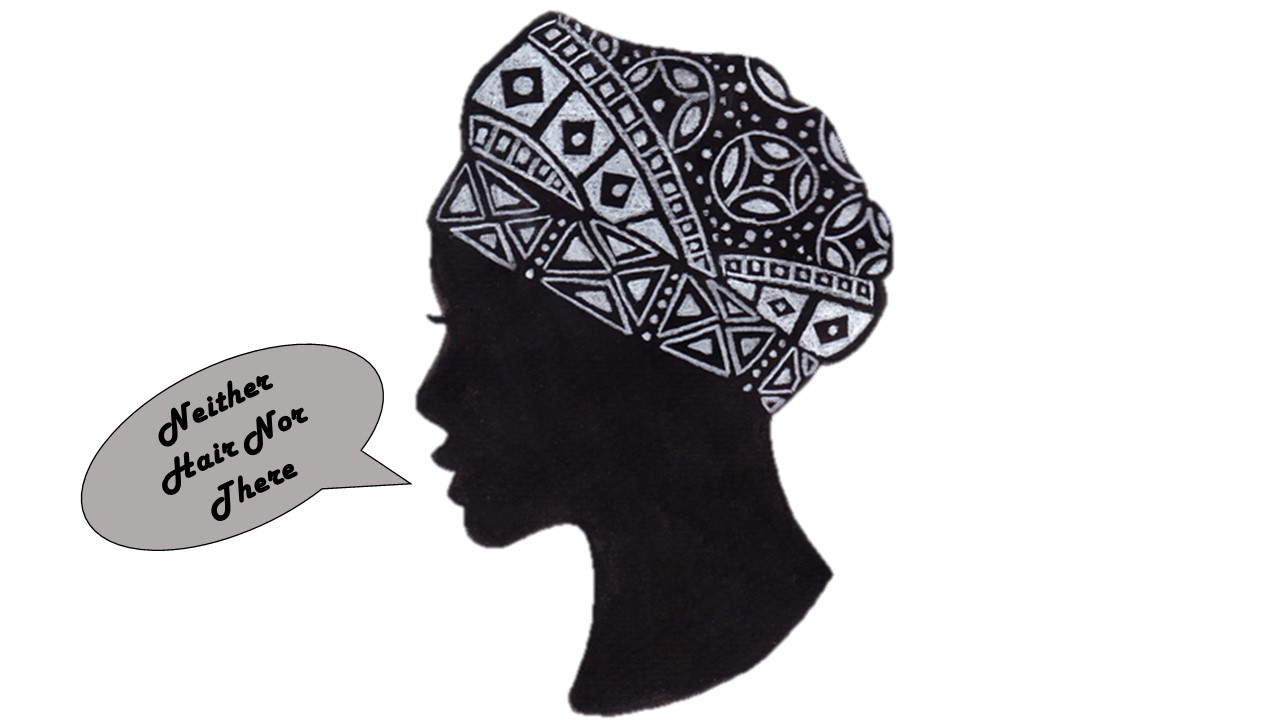
One of the first symbols that we encounter in Americanah is Ifemelu’s hair. Ifemelu is self-conscious about her hair, so she visits a hair braiding salon to have her hair done and to also revisit a familiar culture. We chose these hair salon scenes because the hair salon highlights the culture of gossip and stereotypes. For example, in chapter one, Aisha, the hair braider who is working on Ifemelu’s hair says, “Igbo men take care of women real good… I want marry. They love but they say the family want Igbo woman. Because Igbo marry Igbo always.” Aisha is stereotyping Ifemelu’s ethnicity because she believes that the kind of men who are Igbo only marry Igbo women. In Ifemelu’s mind, she is criticizing Aisha’s close mindedness. Through our medium, we want to demonstrate the kind of gossip and criticism that is voiced in a hair salon.
Stereotypes and criticisms of black and African American women are also often are based around their hair. Natural Afro-textured hair is seen as “unprofessional” or “nappy” in many cultures, which is an opinion based in ethnocentrism. In a study completed by Whitney Bellinger of the University of Pittsburgh at Bradford, the opinions of several African American women were recorded as to explain why these women worked to have “good hair” (Bellinger). “Good hair” was defined as that which has been chemically treated to defy its natural texture. It was found that women who treated their hair reported changing their hair for convenience, better opportunities, and because that is how their mothers did their hair; but those that did not treat it did so based on racial pride. In Americanah, Aisha immediately assumes Ifemelu wants dark hair attachments and snidely asks why she does not relax her hair. This attitude of “fixing” natural hair, which is held by many people all over the world, even natural hair stylists, exemplifies the stereotyping and criticism African women face for having naturally kept hair. Our medium will display the criticism African women face and demonstrate the societal pressure put on them through gossip culture and peer pressure to change their hair. The platform we decided to use is a podcast that will be recorded and edited with the digital tool, Audacity. We are utilizing this medium because it is the best outlet to examine the culture of gossip and stereotypes relating to culture and hair.
Citation: Bellinger, Whitney. Why African American Women Try to Obtain ‘Good Hair.’ University of Pittsburgh at Bradford
I think your group was really smart to focus on the symbolism of hair since it is such a huge object in the book and a huge influence in people lives. Though there is a lot you can talk about in this subject, which is good, but make sure you are focusing on more specific things maybe so your podcast does not seem all over the place or becomes hard to follow.
Hello,
I love that your group is focusing on perception of hair in the African community. For the podcast medium will it be just a discussion on the symbolization of hair or will you also have guests and do an interview? I think it would be cool if time permits to do a short two question interview with a person of African or African American descent and ask them their opinions on the topic.
Hey, cool topic! Will you be interviewing anyone about thier hair and preferences, you could do a short poll around the school to incorporate it into the podcast and relate it more firmly to the audience, in this case, Stevenson students. It would connect things in the book to real life in an easy and interesting way. Good luck on the project!